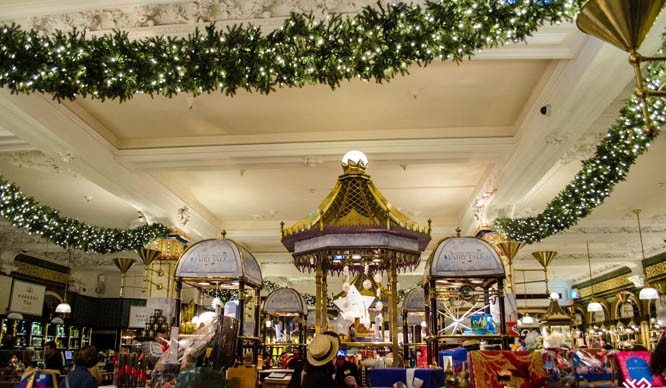
Consumers in the UK seem to be spending like there’s no tomorrow

Dear All,
According to a Deloitte report, UK consumers will be spending an average of €614 or around £540 this Christmas. This is despite the fact that Britain is plunging into economic uncertainty as its financial and trading status post-Brexit remains unclear, and the pound has plummeted following the last year’s Referendum and this June’s snap election.
According to this report, Britons are spending more than they did last Christmas, and more than their European counterparts are doing -- the bulk of their spending is on gifts followed closely by food -- and despite an increase in online shopping, they are still buying from the high street.
Granted that the Deloitte survey only spoke to a little over 8000 people, it does give an interesting glimpse into what a shopaholic society the UK has become.
Nielsens, a leading global consultancy, estimates that this year in the final week before Christmas, Britons will spend a record £4.2 billion on food and drink -- again higher than last Christmas -- an increase of 3.6 per cent on last year which was already markedly higher than previous Christmas.
Christmas is obviously a huge shopping season with retailers pulling out all the stops by investing in advertising and promotions in a bid to shift merchandise, put families under pressure with regard to gift shopping and generally dupe people into believing that any random product is a ‘must have’. Retailers and stores will obviously try to maximise sales but what is interesting is to observe what is happening to the British society in terms of consumerism.
You might say that people in the UK are merely acting as anybody in a capitalistic system is meant to, but as economic and social conditions here are deteriorating, you might think people would find better uses for their money than spending it on the same old Christmas food and increasing heaps of gifts.
This is the first Christmas since the horrific Grenfell Tower tragedy -- the fire that destroyed a 24-storey block of flats in West London, and killed 70 people. Many families, including small children, could not get out in time and perished in the flames. Six months later many of these families are still waiting for the local council to rehouse them, some are still living in temporary accommodation and all of them are living with the trauma of the experience.
The whole Christmas cheer ‘tis-the-season-to-be-merry spiel does pale somewhat when you think of all the suffering in our midst. Similarly, the National Health Service (NHS), which is constantly highlighting the financial pressures it functions under as it provides free healthcare for every resident, is yet another cause towards which some of this festive money might usefully be diverted. Average families in the UK are now poorer, the demand for food banks has increased sharply and there seem to be a rise in the number of people sleeping rough and living on the streets. In this scenario, the quest for the ‘perfect’ Christmas pudding or the ‘must have’ phone or toy or perfume seems strangely obscene.
Charities in the UK make special public appeals in the run-up to Christmas, and the number of people contributing to various charities does increase and total donations are slightly higher, but the fact is that this amount is still much lower than spending on alcohol during this period.
I’m personally not much enthused by the excess and consumerism that Christmas has now become. My family calls me "the Grinch" (a reference to Dr Seuss’ grouchy character who ‘stole’ Christmas), but my position is that it’s not Christmas that’s the issue, it’s the horrible commercialisation of it. The holiday season has become one long, manipulative advertisement and all of us have been lulled into a hypnotic state of compulsive shopping.
It’s the triumph of capitalism, and it is a mind-numbing addiction.
Best wishes